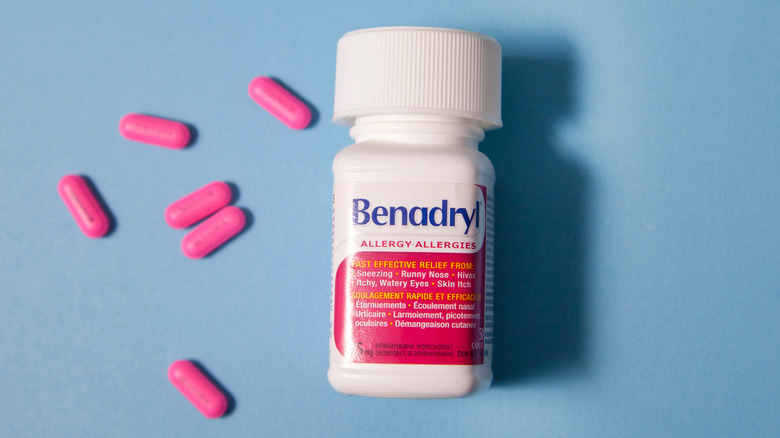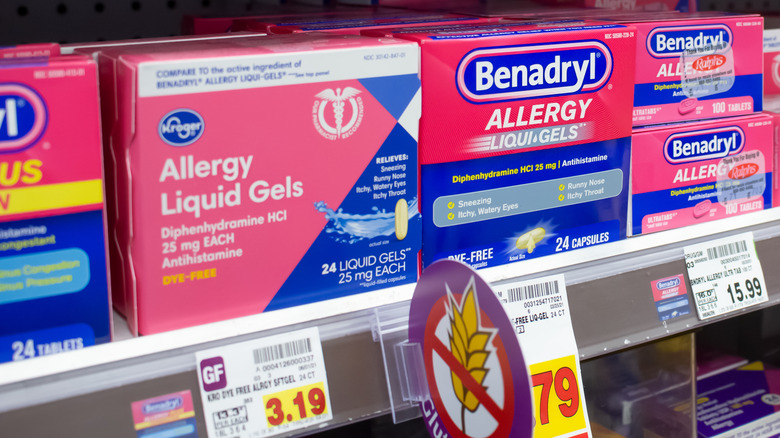When You Take Too Much Benadryl, This Is What Happens
Benadryl is the brand name of diphenhydramine, an over-the-counter antihistamine commonly used to treat symptoms of allergies, hay fever, and the common cold (via Verywell Health). Some of the symptoms Benadryl can treat include sneezing, coughing, runny nose, itchy and watery eyes, itchy skin, and hives.
Like with any antihistamine, Benadryl works by blocking the effects of histamine — an organic compound that triggers an immune response to allergens. By blocking your body's histamine response, Benadryl can temporarily relieve nasal symptoms associated with seasonal allergies and colds. Additionally, due to its sedating effects, it can also be used as a sleep aid.
Although it is generally considered safe and effective, taking too much Benadryl can cause serious side effects. In fact, the U.S. Food and Drug Administration (FDA) issued an alert in September 2020 warning people not to take higher than recommended doses of the drug. This warning was prompted by a viral TikTok challenge, known as the "Benadryl Challenge," which encouraged teenagers to take extremely high doses of Benadryl in order to induce hallucinations.
Can you overdose on Benadryl?
Abusing Benadryl can cause a number of serious health complications and may even result in death (via Health). As an anticholinergic drug, Benadryl can reduce the activity of the neurotransmitter acetylcholine. "This means that the drug blocks the cholinergic nervous system, which is responsible for saliva production and tear production, and facilitates bodily functions such as urination, heart rate, body temperature, brain function, and eye functioning," Dr. Robert Weber, an administrator for pharmacy services at The Ohio State University Wexner Medical Center, told Health.
Taking too much Benadryl can also speed up your heart rate and lead to dry mouth and dry eyes. Other severe side effects include blurred vision, confusion, vomiting, high blood pressure, seizures, hallucinations, heart attack, and brain damage. In rare cases, misuse of the drug can even lead to a fatal overdose.
That's why it's important to stick to the recommended dosage. For adults and children over the age of 12, this means taking 1-2 tablets every 4-6 hours, and no more than 6 doses a day. Children between the ages of 6 and 12, on the other hand, should not exceed one tablet per dose. Since young children are at a higher risk of overdose, children under 6 years of age should not take Benadryl at all.


